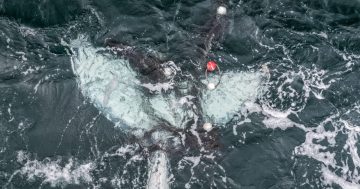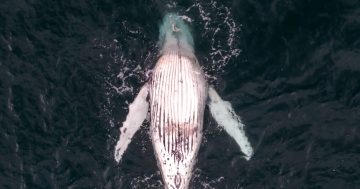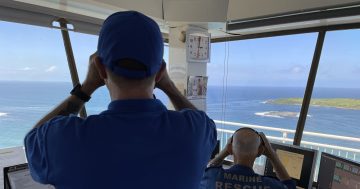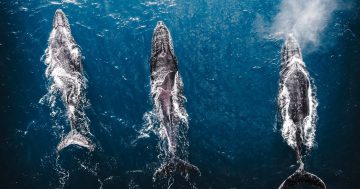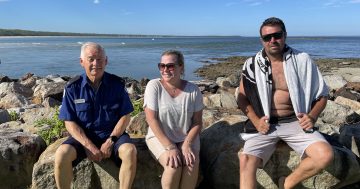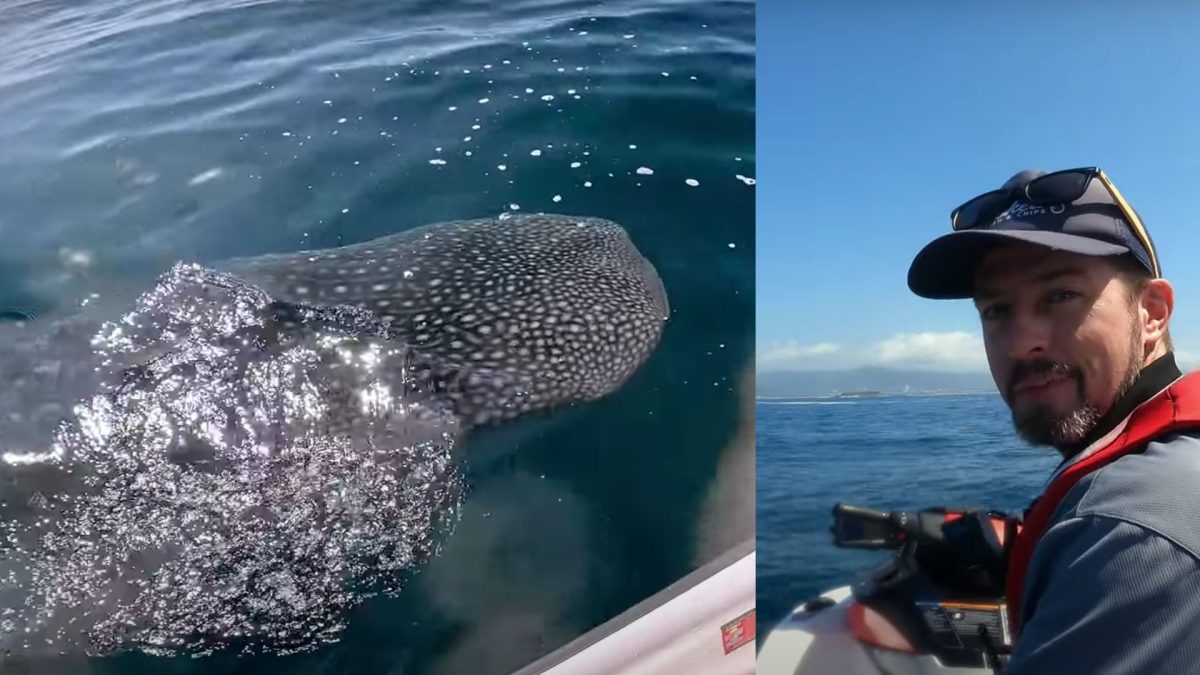
Tim Williams spotted the rare creature while fishing off Wollongong. Photo: Tim Williams.
A slow morning on the water has taken a surprising turn for an Illawarra fisherman after a massive whale shark started rubbing against the side of his jet ski.
Tim Williams was making a final stop on his fishing trip after a fairly uneventful day just off Bass Islet, around three kilometres from shore, when he encountered the unexpected creature.
“I had a line in and I was trying to catch some snapper,” Tim said. “I heard a noise to the left but it didn’t quite register because we always see dolphins and whales out there and once you’ve seen it a million times you kind of just focus on the task at hand.
“When I did look I realised there was a whale shark with its mouth sort of sitting on the back of the jet ski.”
Despite regularly seeing marine life on his fishing trips, the Farmborough Heights dad was caught off guard, but there was no confusion about what he was witnessing with the animal stretching around six metres long, almost twice the length of his jet ski.
“They’re a very unique obvious creature; they look like a shark. They also look like a whale and they have a massive wide mouth … the mouth on this thing was probably close to a metre wide so you can’t mistake that.
“I’ve dived with whale sharks before that are massive in Thailand but it’s very different when you’re on your own, drifting towards the islands and there’s a whale shark rubbing its mouth against the back of your jet ski.”
He said the encounter lasted around 40 seconds and although he had multiple cameras onboard, it took him a minute to start filming as he tried to comprehend how the animal had come so far.
But the footage he did manage to capture has caught the attention of many passionate community members, already receiving thousands of views.
“I had a feeling it was going to get a good response,” Tim said.
“I’m a member of a couple of whale sighting groups and I thought if I popped that in there it was something pretty unique and it kind of went from there.”
Australian Institute of Marine Science PhD candidate Ben D’Antonio said whale sharks tended to stay in the tropics where water temperatures were above 25 degrees Celsius.
“It is quite rare to see a whale shark as far south as Wollongong with very few sightings historically in Victoria and New South Wales,” Mr D’Antonio said.
“However, during the summer months when water temperatures increase, it is possible that some individuals follow the warm water and venture south.”
He said it was not clear what could be attracting whale sharks to the Illawarra with more scientific data needed to be collected to create a more definitive answer, but theorised it could be related to currents.
“The warm waters brought to the region by the East Australian Current, which flows from the north to the south, and which has been particularly strong in recent days, could be a factor,” Mr D’Antonio said.
“The dynamic of ocean currents can generate large spiralling currents (ocean eddies) that trap food and boost local productivity and these gentle giants are always looking for an easy meal.”
He said that while the shark’s location might be unusual, its behaviour wasn’t, with the curious creatures known to approach boats and fisherman.
But Mr D’Antonio said it was important to admire the animals from a distance and not intentionally come within 250 metres of them, and to keep boats in neutral when the sharks were nearby and not to touch them.









